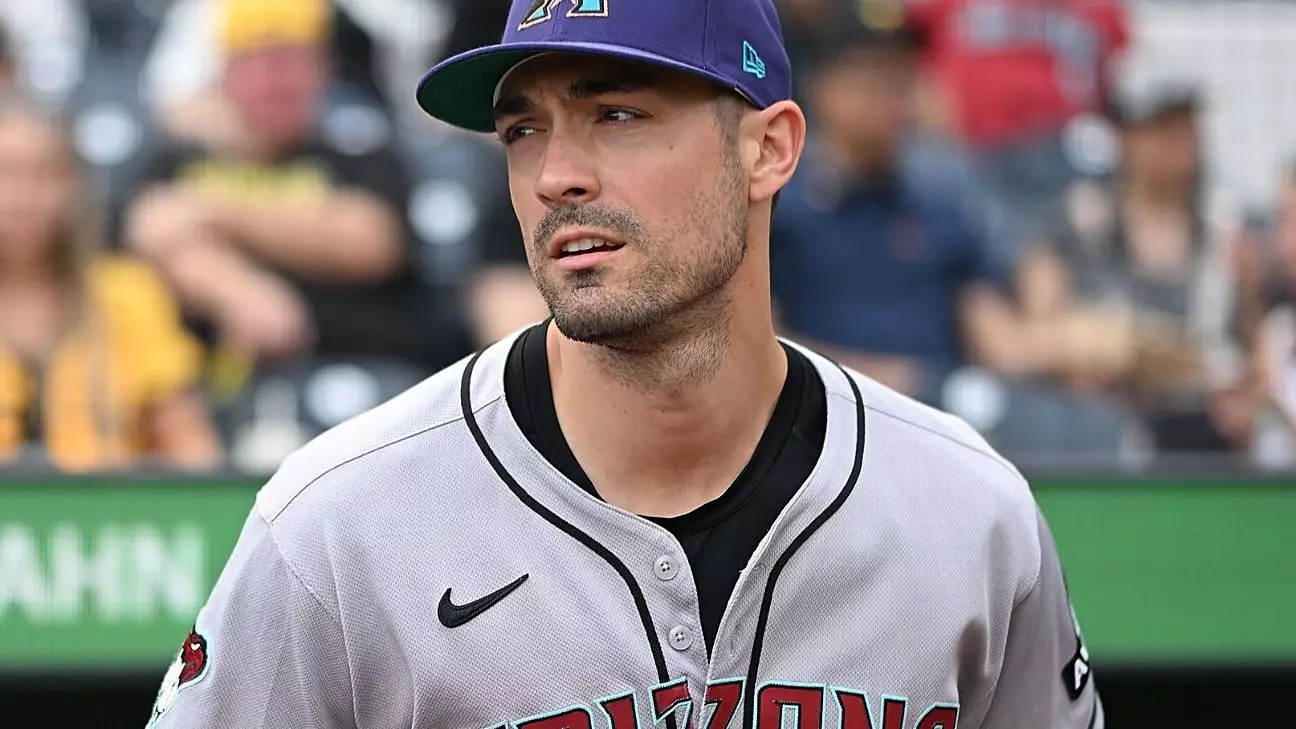The Kansas City Royals’ decision to acquire veteran outfielder Randal Grichuk represents a calculated gamble rooted in a desire to overhaul a team struggling to find its footing. This transaction underscores the franchise’s recognition that incremental improvements are insufficient; instead, they are betting on experience and proven power to ignite a turnaround. Grichuk, with his established Major League pedigree, brings not only offensive potential but also a veteran presence that the Royals desperately need. His arrival indicates a mindset shift—no longer solely relying on developing prospects, but actively seeking seasoned players who can contribute immediately and mentor younger talent.
The Dynamics of the Trade and Its Implications
The deal’s timing, just before the trade deadline, reveals strategic intent. Arizona, a team trying to contend in a tough National League landscape, moves on from Grichuk after a modest season. For the Royals, acquiring him for a young reliever like Andrew Hoffmann suggests a focus on amplifying their offensive firepower rather than developing raw pitching prospects. Grichuk’s previous success—highlighted by a formidable 2021 season—demonstrates his capacity to shift momentum, especially with his power potential and RBIs, traits that the Royals are likely to exploit more within their lineup.
This trade also hints at the Royals’ commitment to change their team identity. Investing in a player with a history of making impactful plays and bringing clubhouse energy can serve as a catalyst for improved performance—both offensively and leadership-wise. Given that Grichuk has played for multiple teams, his experience across different systems makes him an asset capable of adapting quickly and providing value in ways that extend beyond the stats sheet.
The Broader Context of the Trade Scene
This move occurs amid a frenzy of blockbuster trades aimed at building contenders, and the Royals are clearly positioning themselves in this high-stakes environment. Meanwhile, Arizona continues its aggressive pursuit of upgrades, as evidenced by recent moves like trading Josh Naylor to Seattle. Such activity illustrates a broader trend: teams are prioritizing short-term gains that can accelerate their competitive arcs, even at the expense of future prospects.
For Kansas City, this acquisition isn’t just about adding a player; it’s a statement of intent. They recognize their window to contend is narrow and are willing to leverage veteran talent to expedite the process. The insertion of Grichuk into their lineup suggests they’re aiming to turn around their fortunes more rapidly, betting that his experience and power can spark a winning streak and elevate the team’s competitiveness in the competitive American League Central.
Amid Uncertainty, a Clear Strategy Emerges
Ultimately, the Royals’ pursuit of Grichuk reflects a team that refuses to accept mediocrity. Instead, they are embracing a philosophy that values proven production, tactical flexibility, and leadership. The cover of an “innovative rebuild” is being replaced by an aggressive quest for immediate impact. Whether Grichuk can be that catalyst remains to be seen, but the message is clear: Kansas City is no longer content to passively wait for their prospects to develop; they are actively shaping their destiny with bold, strategic moves. This trade exemplifies a franchise that understands the importance of boldness in the pursuit of excellence—an inspiring stance that could signal brighter days ahead.

